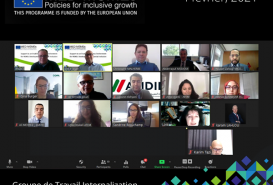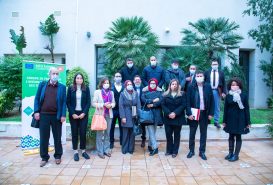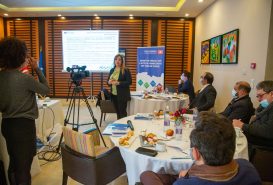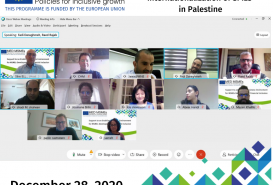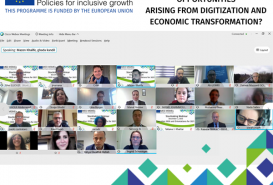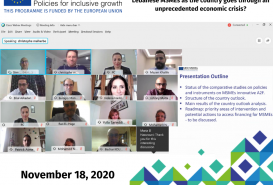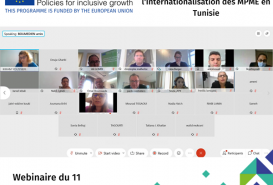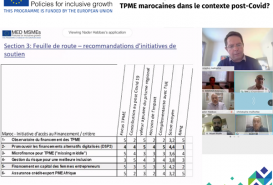Brief Description
The countries of the Southern Mediterranean region wish to accelerate their economic development by boosting Micro, Small and Medium Enterprises (MSMEs) dynamics. In view of contributing to unlocking their potential, the European Union is funding a regional initiative “Support to an enabling business environment for MSME development & financial inclusion” (referred to as the MED MSMEs programme). By leveraging on regional potential and smart pilot actions, the programme facilitates policy dialogue on support to MSMEs including access to finance and regulation-related topics.
Countries covered: Algeria, Egypt, Israel, Jordan, Lebanon, Libya, Morocco, Palestine, Syria and Tunisia.
Objectives
- Position MSMEs as driver of inclusive and sustainable growth in a globalised economy, through a better adaptation of selected aspects of MSME development policies and regulations to the needs of MSMEs
- Enhance the MSMEs’ regulatory and institutional environment, by promoting the administrative simplification and regulatory impact analysis as an element of SME policy making;
- Improve MSME Access to Finance through alternative financial tools and digitalisation; by working on an improved matching, per MSME needs, of selected aspects of finance policies and instruments, notably concerning alternative financial mechanisms;
- Raise awareness, among MSMEs representatives and relevant stakeholders, on financial instruments including the “EU Initiative for Financial Inclusion” and tools available through a regional platform which enhances South-South dialogue.
Actions in brief
- Produce relevant studies in support of the work programme of the UfM Regional Platform on Industrial Cooperation including assessment of MSME constraints for the use of alternative financial mechanisms and instruments;
- Support the formulation of more efficient policies, regulations and recommendations;
- Develop MSMEs good practice databases;
- Facilitate the exchange of good practices at bilateral and regional level of admin simplifications and regulatory impact analysis;
- Develop mechanisms to facilitate private sector association to the main phases of strategy development and policy-making;
- Improve existing EBESM (Enhancement of the Business Environment in the Southern Mediterranean) mapping of access to finance tools;
- Launch a stakeholder dialogue and other actions to raise awareness among financial institutions on MSME needs;
- Develop a regional platform including measures taken to address Covid19 which facilitates exchange of views, sharing of experiences and best practices for MSMEs in Southern Neighbourhood countries;
- Implement communication activities to raise awareness on the ‘EU Initiative for financial Inclusion’;
- Organize a mid-term and a closing event highlighting achievements & next steps.
News
Thematics
Sustainable Development
Newsletter
Subscribe to receive our latest updates
News alerts
Personalise your news alerts subscription
© This project is funded by the European Union, 2025
The information on this site is subject to a
disclaimer
and protection of
personal data .


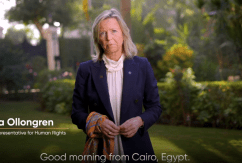
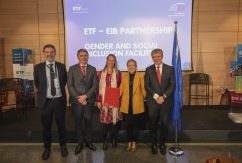

























 Syria
Syria 
